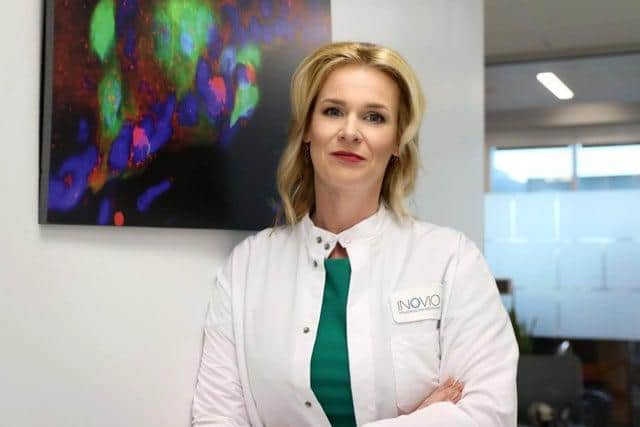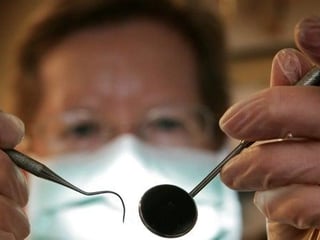Scots scientist says one million coronavirus vaccines will be available by end of the year
Dr Kate Broderick told the Scotsman that “not in my worst nightmares did I think it was going to get as bad as this”.
The researcher, who is originally from Dunfermline, has been working round-the-clock with her team at pharmaceutical giant Inovio in San Diego, California, to develop a vaccine in just six months.
Advertisement
Hide AdAdvertisement
Hide AdDr Broderick said after the initial doses are made available the plan is to ramp-up production and get 50 to 100 million jabs released worldwide during 2021.


The 42-year-old, who studied at Glasgow University before doing post-doctoral research at the University of California, confirmed that the Bill Gates Foundation had donated a further $5 million to aid the development of the drugs.
The team at Inovio are already three months ahead of schedule, having carried out successful tests on animals including rabbits, guinea pigs and primates.
Dr Broderick praised the efforts taken by Nicola Sturgeon and the Scottish Government saying they were “completely right” in the course of action taken so far, which now includes schools and nurseries shutting down from Friday.
She said the plans would prevent coronavirus becoming “worse than you can imagine” and “if you don’t do this now - it’s going to be so, so, much worse.”
Dr Broderick added: “We’ll have a million doses and even though that sounds a lot, it’s really not that many when you spread it out over everybody who wants it - so that’s a start.
“Then over the next six months to a year following that, we’d really scale up the manufacture so we had 50 to 100 million doses.
“The most affected and people who would be most impacted - so it would primarily go to first responders, medical personnel and then also potentially people with other health conditions.
Advertisement
Hide AdAdvertisement
Hide Ad“It’s hard to work out a costing structure [for the vaccine] until we know where we are in terms of epidemiology.”
Dr Broderick spoke of the concept of ‘herd immunity’ , something the UK Government had received a lot of criticism over with a large number of medical experts believing this was the course of action Boris Johnson was pursuing.
She said: “Herd immunity is a really important part of this process but we’re not going to get herd immunity until we have a vaccine.
“So herd immunity is important but we’re nowhere close to having anything like that at the moment.
“There’s a critical mass of the population who are protected and this percentage differs depending on the virus to be considered a herd immunity.
“The vaccine would provide immunity and the others who aren’t immune would be somehow protected because there would be less cases of the coronavirus in society.”
Dr Broderick who has previously worked who has helped create successful vaccines for ebola, zika, lassa fever and Mers (Middle East Respiratory Syndrome moved from Glasgow to California over 20 years ago.
She added: “It’s possible that it [coronavirus] will go away over the next few months but it could come back and again it comes down to the fact that we’ve just no idea what’s going to happen to this virus.
Advertisement
Hide AdAdvertisement
Hide Ad“A virus can mutate, it can change - it could just disappear and we’ll never, ever see it again.
“That’s a possibility but I wouldn’t rely on any of those things as we’ve just no idea.
“I knew it was going to be bad - every school here in San Diego is shut, the shops are empty and there’s no food on any of the shelves - it’s just crazy.
“I’m sure nobody has experienced anything like this in their whole lives and unlikely never will again.
“Some people are being told to work from home but it’s not like I can do that - so it’s really difficult”.
